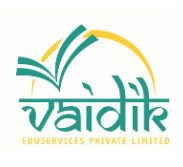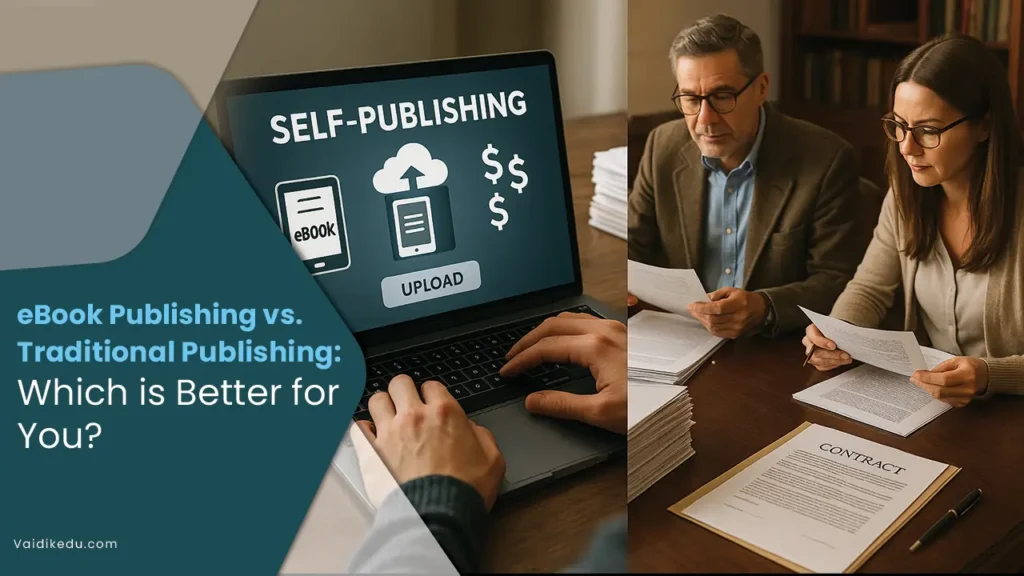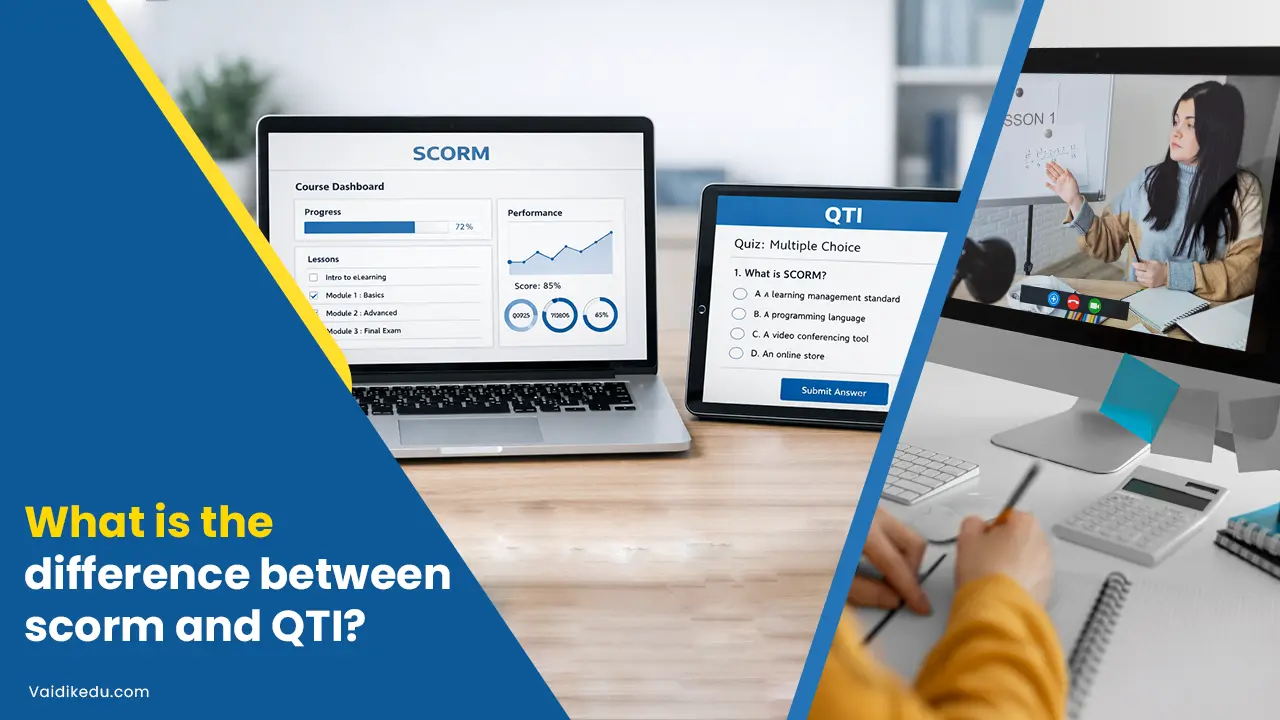In recent years, there has been an immense transformation in the publishing world with the rise of E- Book platforms offering authors unprecedented control and flexibility over the traditional publishing model.
As a result, aspiring authors face various challenges and hence the question arises: which publishing route is better? In this blog, we’ll explore the pros and cons of eBook and traditional publishing, helping you decide the better alternative.
Traditional Publishing: The Established Path
Over centuries, the traditional way of publishing has been the preferred choice of authors for publishing their writings. The traditional way primarily involves working with a publishing house that handles formatting, editing, cover page design, printing and distribution.
Some OF The Benefits OF Traditional Publishing Are:
- A wider audience can be reached considering the reputation and marketing resources of the publishing house.
- Advance payments can be earned from the publisher during the writing and publishing process. Book sales can help in getting royalties at much higher rates.
- High-quality standards are maintained since the publisher provides highly professional editing, design, formatting, and production services.
- Traditional publishing is often seen as a seal of approval, lending credibility to your work.
- Traditional publishing houses have well established marketing and distribution networks, giving your book access to bookstores, libraries and online retailers. They can also leverage their connections to secure reviews and media coverage.
- The marketing efforts of the publishing house can help in creating buzz around your book and establish you as a serious author.
However, Traditional Publishing Also Has Certain Drawbacks:
- It can be challenging to get your work accepted by the publishing house.
- You may have to compromise on creative decisions for cover design, way of printing, etc. while working with a traditional publisher.
- Traditional publishing is a slow process. It can take months or even years to get your work published.
- Advanced payments are not guaranteed.
E- Book Publishing: The Recent Digital Revolution
E- Book publishing also known as self or independent publishing has gained worldwide attention. It has revolutionized the way authors publish their work. Global audiences can be reached digitally without the need for traditional publishing houses. The rise of e-readers and digital devices has revolutionized the publishing industry by making it easier than ever for authors to share their work with the world.
What is E- Book Publishing
E- Book publishing refers to the process of creating and distributing books in digital format. These ebooks can be read on a variety of devices.
Several Benefits OF E- book Publishing Are:
- Complete creative control can be maintained over your work. Thus, you get to choose your cover design, way of printing, etc.
- Ebook publishing enables you to publish your book quickly without having to get your work accepted by any publishing house.
- Ebook publishing eliminates printing and distribution costs.
- Ebook publishing platforms offer higher royalties than traditional publishing houses.
- Ebook publishing reduces production, printing and distribution cost.
- Social media, emails and other channels can be used to promote the ebook.
- Ebook publishing platforms provide data analysis for tracking sales, reader engagement and audience demographics,etc.
Some Drawbacks OF E- book Publishing Are:
- The author has to handle editing, formatting, cover design, etc.
- It can be challenging to reach the audience without proper marketing and promotions.
- Maintaining consistent quality over multiple formats may be difficult for the author.
- Determining the right price for an ebook can be difficult.
- There are high chances of piracy for the ebook published.
Some of the widely used ebook publishing platforms are Amazon Kindle Direct Publishing (KDP), Google Play Books, Apple Books,etc.
Hybrid Approach:
Traditional and E- book publishing can be successfully combined by authors. Initially they can publish their ebook and then publish through traditional publishing houses.
This allows them for services like editing, formatting and cover design. It also helps the authors to maintain their creative control. This way is more beneficial for the authors as they retain control over digital versions and are also benefited by the marketing reach of traditional publishers.
Which is Better For You
The final choice between the two depends on personal preferences. If creative control, higher royalties, and instant publishing is valued then ebook publishing can be a better choice. Or if editing, formatting, marketing is taken into consideration then traditional publishing may be the better choice.
Conclusion:
The decision between both traditional and ebook publishing depends on individual preferences. Both have their pros and cons. Whether you choose traditional publishing, ebook publishing or hybrid approach, the most important thing is to get your work into the hands of readers.
Frequently Asked Questions
The traditional publishing process can take 1 to 3 years approx for publishing a book.
Common reasons are poor quality writing, commercial potential and oversaturation of the market.
Yes, the book can be published digitally or from other traditional publishing houses in the market.
Yes, the ebook can be published through multiple formats.
Yes, you can publish a book digitally that was previously traditionally published but you need to obtain the rights back from the publishing house.









